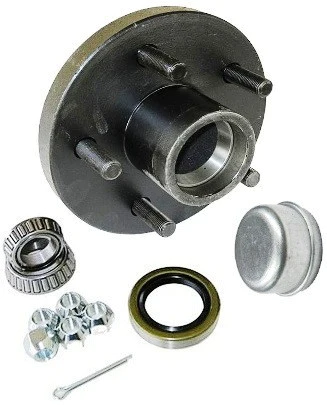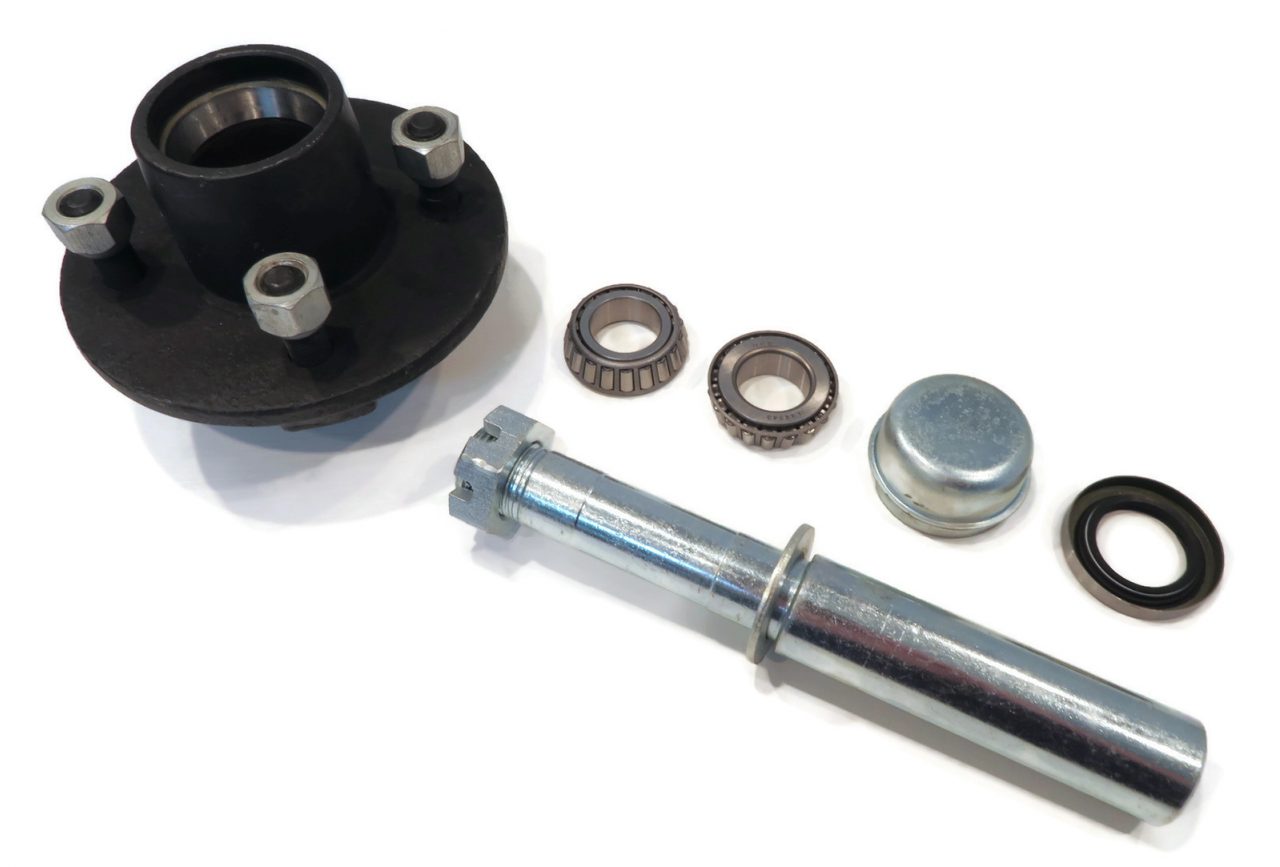
Can you recommend reliable brands for purchasing replacement axle hubs?
When it comes to purchasing replacement axle hubs, there are several reliable brands known for their quality and durability. Here are some recommended brands:
- Timken: Timken is a well-known brand that specializes in manufacturing high-quality bearings and hub assemblies. They have a reputation for producing reliable and long-lasting products. Timken axle hubs are widely used in the automotive industry and are trusted by both professionals and DIY enthusiasts.
- Moog: Moog is another reputable brand that offers a wide range of suspension and steering components, including axle hubs. Moog axle hubs are known for their precision engineering, excellent build quality, and reliable performance. They are designed to meet or exceed OEM (Original Equipment Manufacturer) specifications and are a popular choice among car owners.
- ACDelco: ACDelco is a trusted brand that provides a comprehensive range of automotive replacement parts. Their axle hubs are designed to deliver reliable performance and durability. ACDelco axle hubs are often recommended for their compatibility with various vehicle makes and models, making them a reliable choice for replacement.
- SKF: SKF is a well-established brand with a strong reputation in the automotive industry. They are known for their high-quality bearings and hub assemblies, including axle hubs. SKF axle hubs are engineered to provide excellent performance and longevity. They are often regarded as a premium option for those seeking reliable replacement parts.
- NTN: NTN is a trusted manufacturer of bearings and hub assemblies. They offer a range of axle hubs that are designed to meet stringent quality standards. NTN axle hubs are known for their durability and precise fitment, making them a reliable choice for replacement in various vehicles.
It’s important to note that the availability of specific brands may vary depending on your location and the make and model of your vehicle. Additionally, it’s always a good idea to consult with a trusted mechanic or do thorough research to ensure the compatibility of the axle hubs with your vehicle before making a purchase.
In summary, some reliable brands for purchasing replacement axle hubs include Timken, Moog, ACDelco, SKF, and NTN. These brands have a solid reputation for producing high-quality and durable axle hubs, making them trusted choices for maintaining and repairing your vehicle’s axle system.

How often should axle hubs be inspected and replaced as part of routine vehicle maintenance?
Regular inspection and maintenance of axle hubs are crucial for ensuring the safe and efficient operation of a vehicle. The frequency of inspection and replacement may vary depending on several factors, including the vehicle’s make and model, driving conditions, and manufacturer’s recommendations. Here are some guidelines to consider:
- Manufacturer’s recommendations: The first and most reliable source of information regarding the inspection and replacement intervals for axle hubs is the vehicle manufacturer’s recommendations. These can usually be found in the owner’s manual or the manufacturer’s maintenance schedule. It is essential to follow these guidelines as they are specific to your particular vehicle.
- Driving conditions: If your vehicle is subjected to severe driving conditions, such as frequent towing, off-road use, or driving in extreme temperatures, the axle hubs may experience increased stress and wear. In such cases, more frequent inspections and maintenance may be necessary.
- Visual inspection: It is a good practice to visually inspect the axle hubs during routine maintenance or when performing other maintenance tasks, such as changing the brakes or rotating the tires. Look for any signs of damage, such as leaks, excessive play, or worn-out components. If any abnormalities are detected, further inspection or replacement may be required.
- Wheel bearing maintenance: The axle hubs house the wheel bearings, which are critical for the smooth rotation of the wheels. Some vehicles have serviceable wheel bearings that require periodic maintenance, such as cleaning and repacking with fresh grease. If your vehicle has serviceable wheel bearings, refer to the manufacturer’s recommendations for the appropriate maintenance intervals.
- Unusual noises or vibrations: If you notice any unusual noises, such as grinding, humming, or clicking sounds coming from the wheels, or if you experience vibrations while driving, it could be an indication of a problem with the axle hubs. In such cases, immediate inspection and necessary repairs or replacement should be performed.
It’s important to note that the intervals for inspecting and replacing axle hubs can vary significantly between different vehicles. Therefore, it is recommended to consult the vehicle manufacturer’s recommendations to determine the specific maintenance schedule for your vehicle. Additionally, if you are unsure or suspect any issues with the axle hubs, it is advisable to have a qualified mechanic or automotive technician inspect and assess the condition of the axle hubs.
In summary, the frequency of inspecting and replacing axle hubs as part of routine vehicle maintenance depends on factors such as the manufacturer’s recommendations, driving conditions, visual inspections, wheel bearing maintenance requirements, and the presence of any unusual noises or vibrations. Following the manufacturer’s guidelines and promptly addressing any abnormalities will help ensure the proper functioning and longevity of the axle hubs.

Where can I access reliable resources for understanding the relationship between axles and hubs?
When seeking reliable resources to understand the relationship between axles and hubs, there are several avenues you can explore. Here’s a detailed explanation:
1. Manufacturer’s Documentation: The first place to look for information is the official documentation provided by the vehicle manufacturer. Consult the owner’s manual or technical service manuals for your specific vehicle model. These resources often contain detailed explanations, diagrams, and specifications regarding axles and hubs, including their relationship and functionality.
2. Automotive Repair and Service Manuals: Automotive repair and service manuals, such as those published by Haynes or Chilton, can be valuable sources of information. These manuals provide comprehensive guidance on various vehicle systems, including axles and hubs. They often include step-by-step instructions, diagrams, and troubleshooting tips to help you understand the relationship between axles and hubs.
3. Online Forums and Communities: Online forums and communities dedicated to automotive enthusiasts or specific vehicle makes and models can be excellent resources. These platforms provide opportunities to interact with experienced individuals who may have in-depth knowledge about axles and hubs. Participating in discussions, asking questions, and sharing experiences can help you gain insights and a better understanding of the relationship between axles and hubs.
4. Professional Mechanics and Technicians: Consulting with professional mechanics or technicians who specialize in your specific vehicle make or have expertise in axles and hubs can provide valuable information. They can explain the relationship between axles and hubs, answer your questions, and provide practical insights based on their experience. Local service centers or authorized dealerships are good places to seek professional advice.
5. Educational Institutions: Technical schools, vocational programs, and community colleges often offer courses or resources related to automotive technology. Consider exploring their curriculum or reaching out to instructors who can provide educational materials or guidance on understanding axles and hubs.
6. Online Research and Publications: Conducting online research can lead you to various publications, articles, and websites that provide information on axles and hubs. However, it’s crucial to critically evaluate the credibility and reliability of the sources. Look for reputable websites, publications from trusted automotive organizations, or articles written by experts in the field.
Remember to cross-reference information from multiple sources to ensure accuracy and reliability. It’s also important to stay up to date with the latest advancements and industry standards in the automotive field, as knowledge and technology can evolve over time.
In summary, to access reliable resources for understanding the relationship between axles and hubs, consider consulting manufacturer’s documentation, automotive repair manuals, online forums, professional mechanics, educational institutions, and conducting online research. By exploring these avenues, you can gain comprehensive knowledge and a better understanding of the relationship between axles and hubs.


editor by CX 2023-12-27